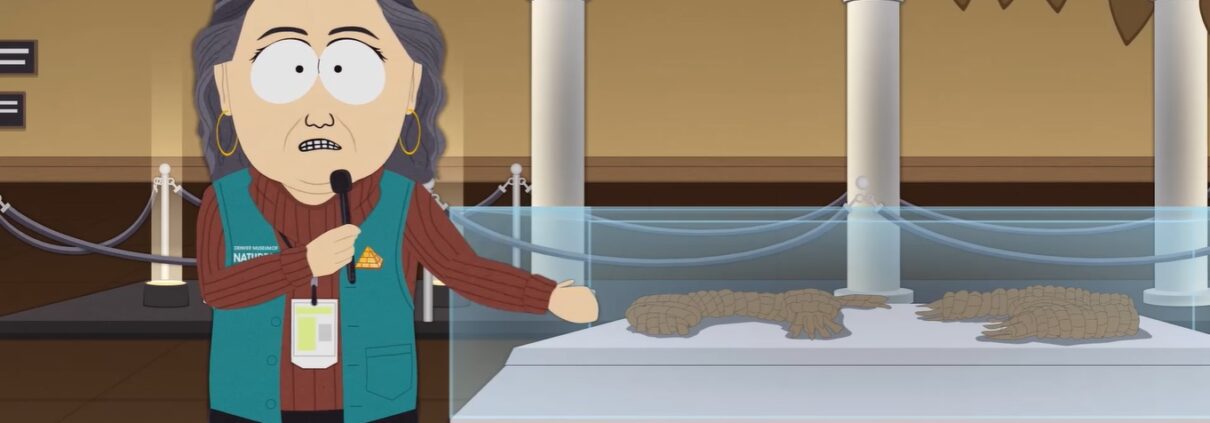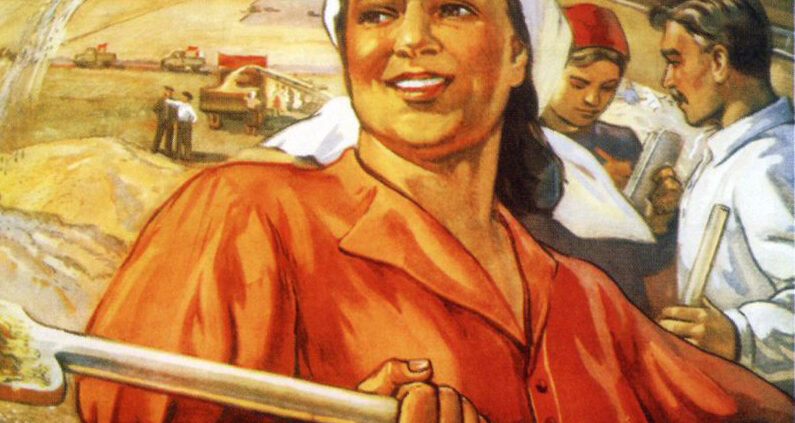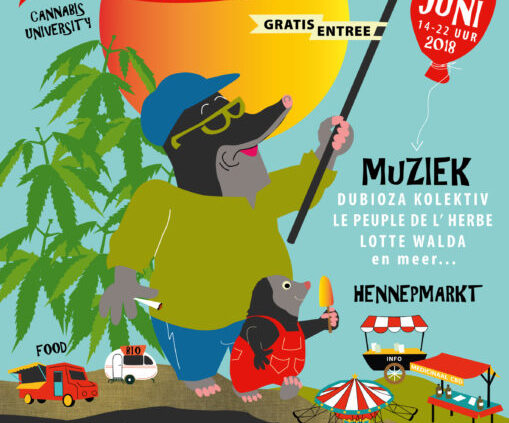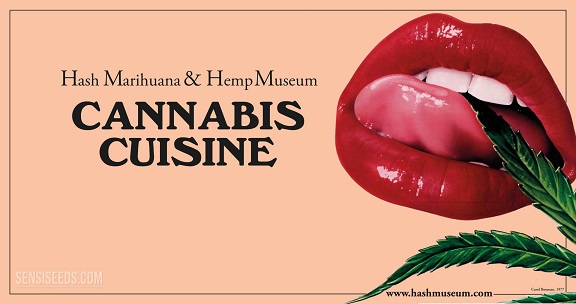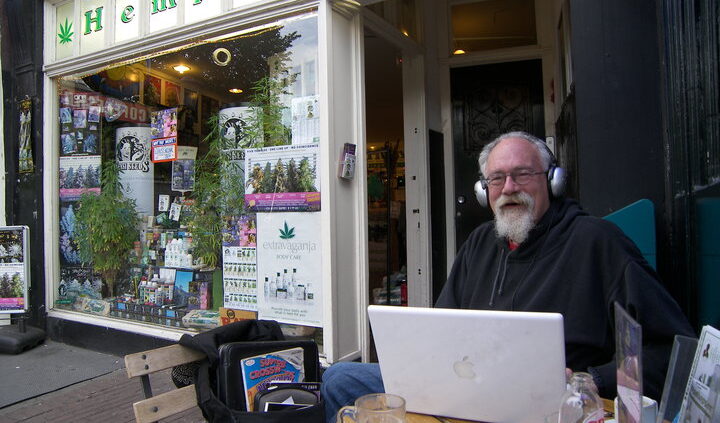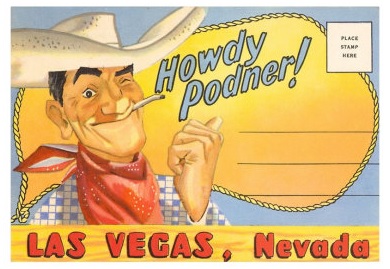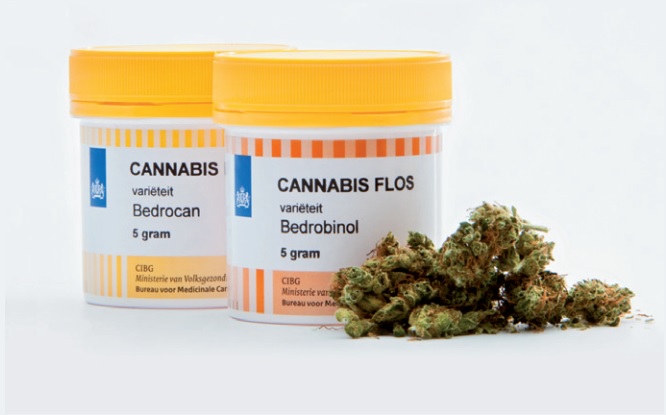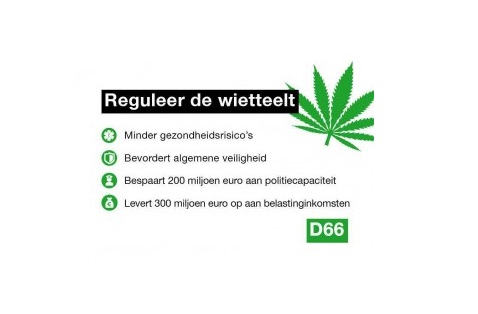[…] I’ve always been fascinated by the origins of the cannabis tolerance movement in Amsterdam and the Netherlands. How did this happen? How did this little country develop the most intelligent approach to marijuana smoking in the entire world?
At the same time that Holland launched its tolerance campaign, we passed local legislation in Ann Arbor, East Lansing and Ypsilanti that limited marijuana crime punishment to a $5 fine, but our movement never went any further than that until medical marijuana was legalized in 2008.
Amsterdam and the Netherlands went on to establish a system that allowed hundreds of coffeeshops to serve marijuana and hashish smokers for what’s turned out to be almost 50 years.
Here’s how the Anne Bonney, writer of Cannabis in Holland—an Introduction: A Book of Cannabis Truths, says it happened.
HASH HITS EUROPE
Along with the political and social unrest of the 1960’s came a huge explosion in the use of Cannabis and psychedelics. Another part of the cultural upheaval was travel.
Many young Europeans left the comforts of home or university to travel to the exotic East. In those days the world political situation was such that one could drive (or in some cases, hitchhike) from Europe to Tangiers, Delhi or Kabul and many did.
On their travels the young adventurers adopted many foreign practices—from meditation to vegetarianism and hashish smoking. Soon large quantities of hashish began to find their way back to Western Europe, with Amsterdam, Frankfurt, Copenhagen and other cities becoming consumption and distribution centers.
THE COFFEESHOPS ARE BORN
By the early 1970’s there was widespread use of Cannabis, speed, heroin, LSD and other recreational drugs presenting various degrees of health risks to Dutch citizens….
The then Minister of Health and Interior, Irene Vorink….concluded that Cannabis was considerably less harmful than the other drugs….Vorink saw that the most common way for Cannabis users to be introduced to drugs “harder” than Cannabis was by the drug sellers themselves.
She took the step of recommending that the authorities stop prosecuting people for the consumption and sales of personal amounts of Cannabis. She then set up a system where access was provided to cannabis in a controlled setting. To do this, she took advantage of existing youth centers as places to permit the sales of small amounts of hashish and marijuana….
The basic concept of the coffeeshop as a place to buy and smoke Cannabis, hang out, have a (non-alcoholic) drink, chat or play a game, has been around since 1971.
That was when the first youth hostel started ignoring smoking and small-scale dealing. It was the government-tolerated selling and smoking in youth centers that provided the model for the coffeeshops of today.
Mila Jansen started a teahouse where people hung out, drank tea and smoked a nice spliff. The first joints were handed out for free as an extra with your cup of tea. Also, people from other countries brought back hashish and other products, so they could trade products with each other.
In 1973, Wernard and three friends opened a small “Tea House” called Mellow Yellow where a single “house-dealer” sold pre-bagged hash and grass from behind the bar rather than the old style where the house simply allowed deals and smoking to go on. Mellow Yellow also sold tea and coffee and had a table football game.
In 1974 Henk de Vries opened the Bulldog Coffeeshop, soon to become world famous, and openly sold hash [as] the first business to use the name “coffeeshop.”
[Note: The coffeeshops proliferated for 20 years until there were 750 or so in the city of Amsterdam alone by 1994, when the federal government began its campaign to regulate and control the traffic in Cannabis, demanding that coffeeshops apply for a license and adhere to the government’s coffeeshop rules:]
THE COFFEESHOP RULES (since 1996)
1. No advertising, including no Cannabis leaf motif in the window or on the sign.
2. No hard drugs, no buying, no selling, no possession, by owner, staff or clients.
3. No public nuisance.
4. No sale of more than five grams to any client on any day.
5. No minors. This means persons under 18.
If shop owners play by these five rules, the government will “turn a blind eye” to the fact that the business sells Cannabis. If any of the five rules are broken, then the shop owner becomes liable for a violation of the Cannabis laws [and subject to loss of license, criminal charges, and/or other punitive measures].
So those are the actual facts of the cannabis issue in Amsterdam and how it sank its roots into the general culture to insure that smokers would be able to get their sacrament. Now let’s have some coffeeshops in Michigan!
Here’s one last little factoid from the Cannabis and Coffeeshops pamphlet: Americans are generally fascinated by the way the Dutch, the British and Europeans in general mix tobacco with their weed before lighting up. I always thought this was because they started out on hashish and smoked it in a mixture with tobacco to keep the flame going. Then weed became available in the 1970s and 80s in large quantities and soon Europeans were smoking 2 grams of marijuana to each gram of hash while using the same mixture concept.
But, as the Grow Grrrlzzz point out, “At first, tobacco was a rare and special imported product, available only to the rich. The seeds were hard to find, of doubtful quality and nobody knew where or how to grow it in Europe. Eventually tobacco became available to enough people that the entire nation [of Holland] took up the craze.
“So, the frugal Dutch began stretching their expensive imported tobacco with the leaves and flowers of their hennep plants by the mid-1500s.” Wow. Free The Weed!
(excerpt from John Sinclair‘s column FREE THE WEED 70. All Rights Reserved.)

